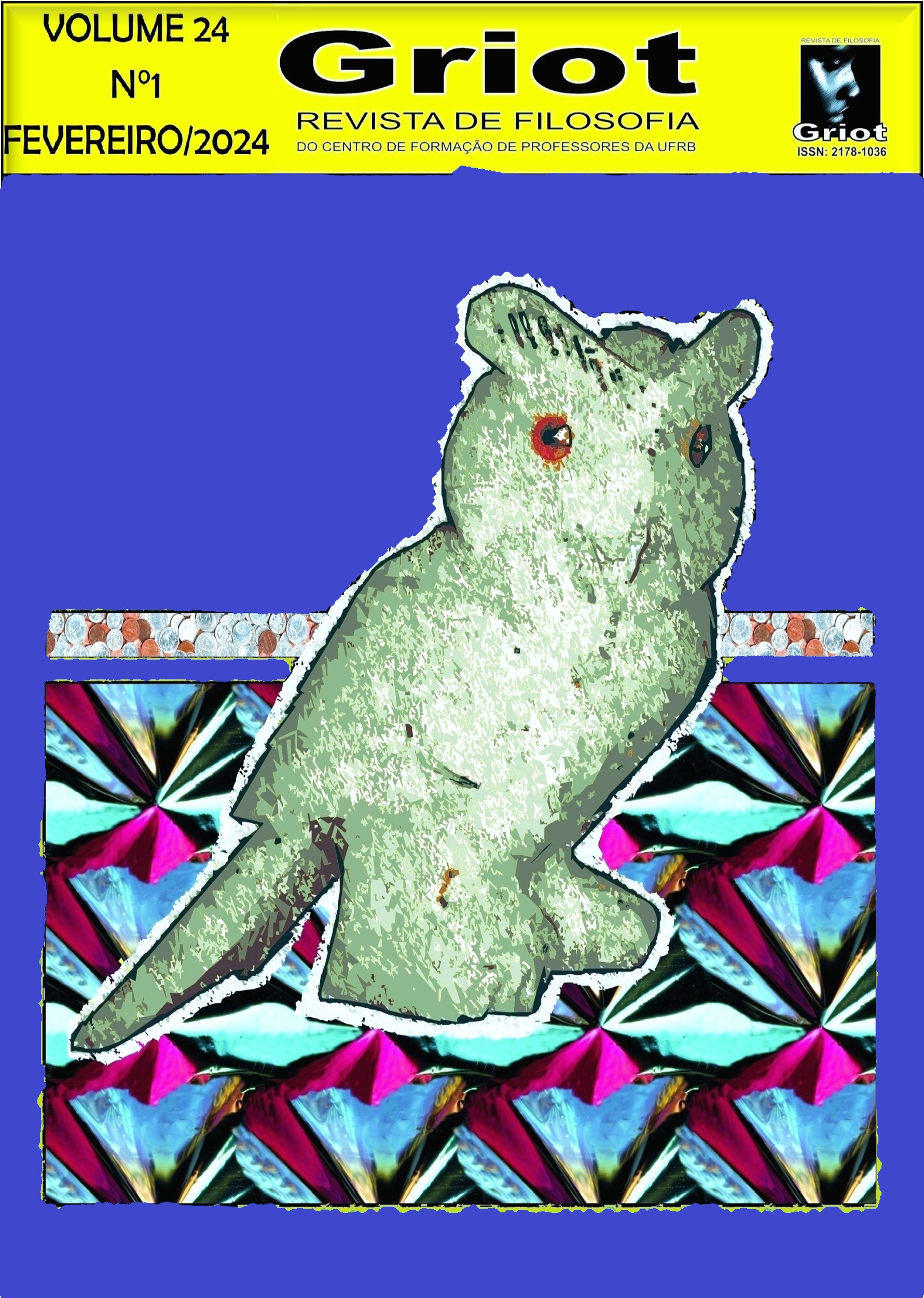. Condillacs understanding of madness
DOI:
https://doi.org/10.31977/grirfi.v24i1.3575Keywords:
Condillac; Association of ideas; Imagination; Physiology; Madness.Abstract
In this article, I propose to examine and explain Condillac's understanding of madness and the relationship between this phenomenon and the concept of the association of ideas and elements of physiology. To this end, I focus the scope of the investigation on two works by the French philosopher: the Essay on the Origin of Human Knowledge (1746) and the Dictionary of Synonyms (1951). In the aforementioned texts, the philosopher mobilizes a conception of madness that is identified with the unruliness of reason. The departure from reason, the errors and deviations of reasoning find their explanatory key in the concept of the association of ideas and the way in which these are linked in the faculty of the imagination. However, within this explanation, there is an ambivalence about physiology and its role in shaping the experiences of madness. At times, the philosopher attributes relevance to arguments of a physiological nature in understanding the manifestations of madness, while at others he relativizes the importance of these arguments and the role of physiology in explaining these manifestations. Despite this hesitation, it has been established that Condillac's explanation takes the association of ideas as the cause of madness and does not dissociate it from a component of a physiological nature. Once the genesis of unruliness of reason has been identified, the philosopher ends up suggesting pedagogical care as an alternative to prevent madness and educate the human spirit.
Downloads
References
CHARRAK, André. Empirisme et métaphysique: l’Essai sur l’origine dês connaissances humaines de Condillac. Paris: Editora Vrin, 2003.
CONDILLAC, Étienne Bonnot de. Dictionnaire des synonymes. In: CONDILLAC, Étienne Bonnot de. Oeuvres philosophiques de Condillac. Paris: Presses Universitaires, 1951. v. 3. p. 1-574.
CONDILLAC, Étienne Bonnot de. Tratado dos sistemas. Tradução de Luiz Roberto Monzani. São Paulo: Abril Cultural, 1973 (Coleção os pensadores).
CONDILLAC, Étienne Bonnot de. Ensaio sobre a origem dos conhecimentos humanos. Tradução de Pedro Paulo Garrido Pimenta. São Paulo: Editora Unesp, 2018.
D’ALEMBERT. verbete Colégio. In: PIMENTA, Pedro Paulo; SOUZA, Maria das Graças de (org.). Enciclopédia ou Dicionário razoado das ciências, das artes e dos ofícios. Tradução de Pedro Paulo Pimenta, Maria das Graças Souza e Luís Fernandes do Nascimento. São Paulo: Editora Unesp. v. 2. p. 63-72.
DEWAULE, Léon. Condillac et la Psychologie Anglaise Contemporaine. Paris: Editora. Ancienne Librairie, 1892.
FONTENELLE. Diálogos sobre a pluralidade do mundo. Tradução de Denise Bottmann. Campinas: Editora Unicamp, 2013.
FOULQUIÉ, Paul. A Psicologia contemporânea. São Paulo: Editora Companhia Nacional, 1969.
GOFFART, Alexandre. Les Esprits animaux. Revue néo-scolastique, [s.l.], n. 26, p. 153-172, 1900. Disponível em: https://www.persee.fr/doc/phlou_0776-5541_1900_num_7_26_1698. Acesso em: 20/09/2023.
LE ROY, G. La psychologie de Condillac. Paris: Boivin, 1937.
MONDOLFO, R. Un psicologo associazionista. Palermo, Editora: Remo Sandron, 1902.
PAGANINI, Gianni. Psychologie et physiologie de l'entendement chez Condillac. Dix-huitième Siècle, [s.l.], n. 24, Le matérialisme des Lumières, p. 165-178, 1992.
QUARFOOD, Christine. Condillac: La Statue et L´Enfant. Traduit par Yvette Johansson. Paris: Ed. L´Harmattan, 2002.
RICKEN, Ulrich. Linguistique et anthropologie chez Condillac. In: SGARD, Jean (ed.). Condillac et les problèmes du langage. Genève-Paris: Editions Slatkine, 1982. p. 75-93.
RICKEN, Ulrich. Condillac et le soupçon de matérialisme. In: FINK, Béatrice; STENGER, Gerhardt (ed.). Être matérialiste à l'âge des Lumières. [S.l.]: Presses Universitaires de France, 1999. p. 265-274. (Écriture). Disponível em: https://www.cairn.info/etre-materialiste-a-l-age-des-lumieres--9782130500070-page-265.htm. Acesso em: 20/09/2023.
THUILLEAUX, Michel. De la folie dans l’histoire philosophique à une compréhension philosophique de la folie. Histoire et histoires en psychiatrie, Toulouse, Questions de psychiatrie, p. 75-107, 1992. DOI: 10.3917/eres.mina.1992.01.0075. Disponível em: https://www.cairn.info/histoire-et-histoires-en-psychiatrie--9782865862078-page-75.htm. Acesso em: 20/09/2023.
YOLTON, John W. Dicionário Locke. Tradução de Álvaro Cabral. Rio de Janeiro : Jorge Zahar Editor, 1996.
Downloads
Published
How to Cite
Issue
Section
License
Copyright (c) 2024 Kayk Oliveira Santos

This work is licensed under a Creative Commons Attribution 4.0 International License.
The authors who publish in Griot: Revista de Filosofia maintain the copyright and grant the magazine the right of first publication, with the work simultaneously licensed under the Creative Commons Attribution 4.0 International License, allowing sharing and adaptation, even for commercial purposes, with due recognition of authorship and initial publication in this journal. Read more...









































































